
-
Find the right food for your petTake this quiz to see which food may be the best for your furry friend.Find the right food for your petTake this quiz to see which food may be the best for your furry friend.Featured products
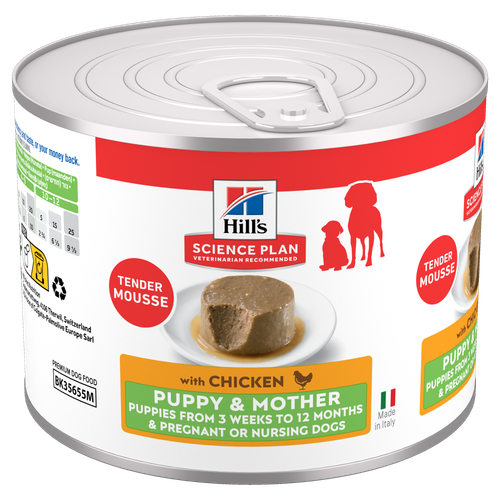 Puppy & Mother Tender Mousse Dog Food
Puppy & Mother Tender Mousse Dog FoodHill's Science Plan Puppy & Mother Tender Mousse Dog Food with Chicken is a complete premium pet food for puppies and pregnant or nursing dogs. Formulated with chicken and other specially selected ingredients, including minerals and antioxidants to support gut health and optimal growth, it comes in a soft mousse texture they'll love.
Shop Now Perfect Weight Small & Mini Adult Dog Food
Perfect Weight Small & Mini Adult Dog FoodHill's Science Plan Adult Small & Mini Dog Food with Turkey is a complete premium pet food for adult small dogs from 1 year old that are prone to weight gain or slightly overweight. This deliciously smooth mousse is formulated to deliver the appropriate amount of energy to support weight maintenance in adult dogs.
Shop Now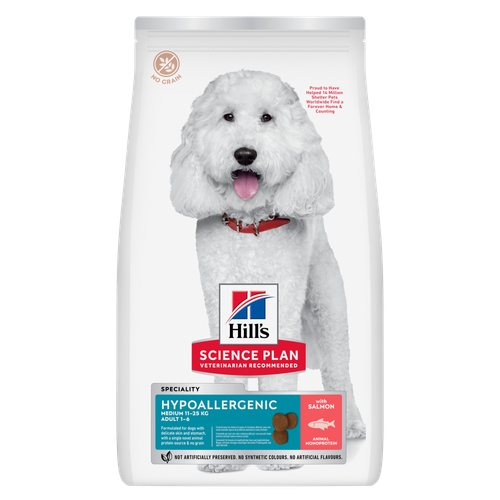 Hypoallergenic Medium Adult Dog Food
Hypoallergenic Medium Adult Dog FoodScience Plan Hypoallergenic Medium Adult dog food with Salmon is a gentle, science-led formula crafted for dogs with food sensitivities. Made with carefully selected, high-quality novel proteins and no grains, it’s tailored to minimise common triggers that can lead to skin and digestive discomfort.
Shop NowFeatured products Oral Care Adult Cat Food
Oral Care Adult Cat FoodHill's Science Plan Oral Care Adult Cat Food with Chicken contains clinically proven kibble technology to reduce plaque & tartar build up.
Shop Now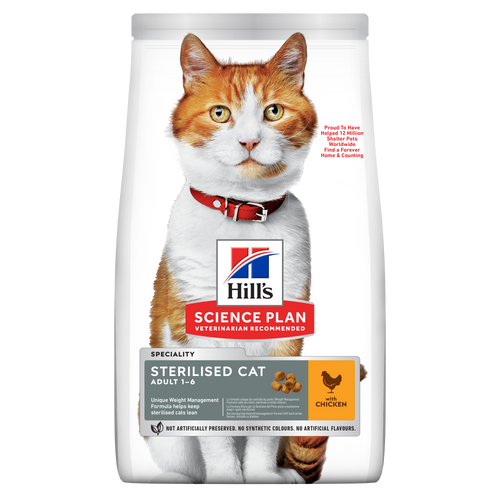 Sterilised Adult Cat Food
Sterilised Adult Cat FoodHill's Science Plan Adult Sterilised Cat Dry Food with Chicken is specially formulated with ActivBiome+ Multi-Benefit Technology. It is a precisely balanced nutrition, tailored to meet the needs of sterilised cats, to help keep sthem lean & healthy.
Shop Now Hypoallergenic Dry Cat Food
Hypoallergenic Dry Cat FoodHILL'S SCIENCE PLAN Hypoallergenic Adult cat food with egg & insect protein is a complete pet food for adult cat 1–6 years old. It's formulated for cats with delicate skin and stomach, with limited high quality novel protein sources & no grain.
Shop Now -
Dog
- Dog Tips & Articles
-
Health Category
- Weight
- Food & Environmental Sensitivities
- Urinary
- Digestive
- Joint
- Kidney
-
Life Stage
- Puppy Nutrition
- Adult Nutrition
- Senior Nutrition
Cat- Cat Tips & Articles
-
Health Category
- Weight
- Skin & Food Sensitivities
- Urinary
- Digestive
- Kidney
-
Life Stage
- Kitten Nutrition
- Adult Nutrition
Featured articles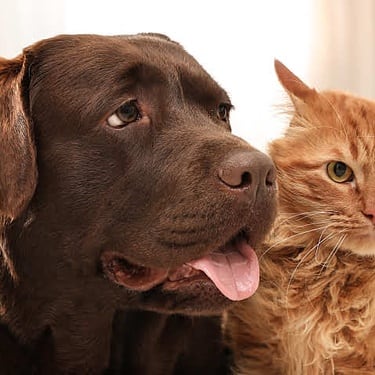 What Cleaning Products Are Safe for Pets?
What Cleaning Products Are Safe for Pets?Learn which cleaning product ingredients can be hazardous for dogs & cats, which alternatives are safer and tips for using cleaning products around pets.
Read MoreTips for Working From Home With a PetGet helpful information on how to get all of your work done while keeping your dog or cat entertained when working from home.
Read More Tips For Mixing Wet And Dry Pet Food
Tips For Mixing Wet And Dry Pet FoodDiscover tips for mixing wet and dry pet food to ensure balanced nutrition and variety for your pet. For comprehensive feeding advice, visit Hill's Pet UK.
Read More -


"Why are my dog's eyes red?" If you're asking, it might be time for a visit to the veterinarian. Red eyes usually indicate an underlying health problem — and the sooner it's treated, the better.
Read on to learn common causes of red eyes in dogs, what other signs to look out for and how your vet might treat your dog's eyes.
Why Are My Dog's Eyes Red?
Have you noticed that your dog's eyes appear bloodshot? Your dog's eyes could be red for a number of reasons. Here are some of the most common causes:
Irritation
If a foreign object, such as dirt, dust, grass or hair gets in your dog's eye, it can cause irritation and redness. Cleaning sprays and perfume can also irritate your dog's eyes.
Signs of irritation:
- Redness
- Tears or watery discharge
- Itchy eyes (expressed by pawing at their eyes or rubbing their face)
Treatment: You should contact your veterinarian first before any applying any treatment. They may suggest to gently wash out your dog's eyes with lukewarm water. Wait an hour or two to see whether the redness clears up.
Allergies
Just like people, dogs can have allergies, too. They can have seasonal allergies and food allergies, as well as allergic reactions to dust, mold, household cleaners and other environmental allergens. Any of these allergies can cause a dog's eyes to turn bloodshot, says the American Kennel Club.
Signs of Allergies:
- Redness
- Tears or watery discharge
- Itchiness
- Licking and scratching
- Sneezing
- Red or inflamed skin
- Hair loss
Treatment: Don't give your dog over-the-counter allergy medicine or eye drops without first consulting your veterinarian. Proper treatment depends on your dog's specific allergy, which your vet will determine by examining your dog and running tests. In some cases, pinpointing allergens can be a long process, especially if your vet suspects a food allergy (12-week food trials are required to properly diagnose food allergies).
Pink Eye
Pink eye, the common name for conjunctivitis, comes in two forms: infectious and non-infectious. Infectious pink eye is caused by a virus or bacterial infection, while the non-infectious type is generally caused by allergies, irritation, injury, a congenital condition or an illness such as distemper.
Signs of Pink Eye:
- Red or puffy eyes
- Itchy eyes
- Eye discharge
- Eyelids sticking together, squinting
- Swelling of the eyelid lining (conjunctiva)
Treatment: Whether or not your dog's case of pink eye is infectious, it needs to be checked out and treated by a vet. They'll determine whether it's the contagious type before determining and treating an underlying cause. Infectious pink eye must be treated with antibacterial or antifungal medicine. Your vet may also give you anti-inflammatory medicine to administer to your dog.
Dry Eye
Another issue that might cause you to wonder why your dog's eyes are red is dry eye, the common term for keratoconjunctivitis sicca (KCS). This condition occurs when the tear glands don't produce enough moisture, causing the tissues of the eye to dry out, says Cuteness. Dry eye can be a result of eye trauma, an underlying health condition or a corneal ulcer.
Signs of Dry Eye:
- Redness
- Itchy, painful eyes
- Thick discharge
Treatment: Your vet will conduct a test to assess the level of moisture your dog's tear glands are producing. They may also check for corneal ulcers. Dogs with dry eye are commonly prescribed eye drops to keep their eyes moist. You'll need to clean their eyes on a regular basis. While dry eye sometimes clears up on its own, it can also be chronic and require lifelong treatment.


Tasty Tips
Glaucoma
Glaucoma is a painful condition caused by fluid buildup that creates swelling and pressure, leading to damage of the optic nerve. If left untreated, glaucoma can lead to blindness.
Signs of Glaucoma:
- Redness
- Pain
- Swollen eyes
- Receding eyeballs
- Cloudy appearance
- Dilated and unresponsive pupils
- Poor vision
Treatment: If your dog shows signs of glaucoma, bring them to the vet immediately. If you manage to catch the condition early enough, there's a better chance that topical medicine or laser surgery will be effective and that your dog's vision can be saved, says Cuteness. In more severe cases, surgery may be required to relieve pain caused by fluid buildup and pressure. In the most severe cases, surgical removal of one or both eyes may be required.

In addition to the causes listed above, red eyes in dogs can be a sign of an illness, such as distemper, or a chronic health condition like diabetes or hyperthyroidism. Red eyes can also indicate a tumor or certain types of cancer. Some dog breeds are more prone to eye problems than others, says Rover.com. This includes flat-faced breeds like pugs and bulldogs, as well as long-haired breeds whose hair can irritate or damage their eyes. Dogs also become more prone to eye problems and underlying health conditions that can cause eye redness as they age.
How to Help Your Dog and When to Call the Vet
When you first notice your dog's red or itchy eyes, you can wait a couple of hours to see if they clear up on their own. If your dog allows it you can check their eyes and around their eyelids to see if there is anything in it that might be causing the problem. For minor irritations like a loose hair, a lukewarm wet paper towel can do the trick for cleaning around the eyelids. If that doesn't clear up the red eye, call your vet to ask for guidance. If allergies are suspected, your vet might give the go-ahead to give your dog an over-the-counter antihistamine. They can also let you know whether you should bring in your dog for an examination.
Visiting the Vet: What to Expect
When you take your dog to the vet to have their red eyes examined, your vet will likely ask about your pet's recent activity, daily habits and health history. They'll conduct an eye exam and may draw blood to check for underlying health conditions. If allergies are suspected, the vet may ask about your dog's environment, including whether or not you someone in your household smokes, the household cleaners you use and the food you feed your dog. With your cooperation, your vet will be better able to determine the source of the redness, provide appropriate treatment and give you instructions on how to care for your pooch at home.
Dogs are precious and so is their eyesight. If you're curious as to the reason why your dog's eyes are red, it's best to contact your vet.


Jean Marie Bauhaus is a pet parent, pet blogger, and novelist from Tulsa, Oklahoma, where she usually writes under the supervision of a lapful of fur babies.
Related products
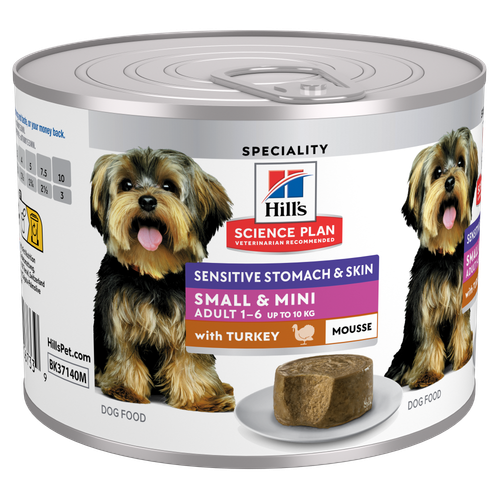
Hill's Science Plan Sensitive Stomach and Skin Small & Mini Adult Dog Food with Turkey is a complete premium pet food for small breed adult dogs aged 1–6 years. This deliciously soft mousse is enriched with ingredients that support digestive health & skin care.

Science Plan Hypoallergenic Medium Adult dog food with Salmon is a gentle, science-led formula crafted for dogs with food sensitivities. Made with carefully selected, high-quality novel proteins and no grains, it’s tailored to minimise common triggers that can lead to skin and digestive discomfort.

Hill's Science Plan Puppy & Mother Tender Mousse Dog Food with Chicken is a complete premium pet food for puppies and pregnant or nursing dogs. Formulated with chicken and other specially selected ingredients, including minerals and antioxidants to support gut health and optimal growth, it comes in a soft mousse texture they'll love.

Hill's Science Plan Adult Small & Mini Dog Food with Turkey is a complete premium pet food for adult small dogs from 1 year old that are prone to weight gain or slightly overweight. This deliciously smooth mousse is formulated to deliver the appropriate amount of energy to support weight maintenance in adult dogs.
Related articles

Puppy, kitten and pet dieting, cat nutrition and dog nutrition information from Hill's Pet
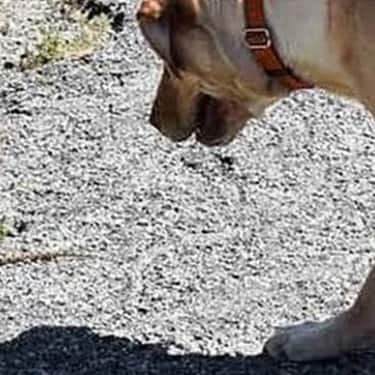
Learn about snake bites on dogs, including clinical symptoms to look for, what to do if you think your dog was bitten, and treatment & prevention options.

Discover the causes, signs, and treatments of kidney disease in dogs and find methods of supporting your dog's kidney health. Learn more at Hill's Pet South Africa.

Dog obesity is a significant problem - learn more about helping your dog become trimmer and healthier through improved nutrition.

Put your dog on a diet without them knowing
Our low calorie formula helps you control your dog's weight. It's packed with high-quality protein for building lean muscles, and made with purposeful ingredients for a flavorful, nutritious meal. Clinically proven antioxidants, Vitamin C+E, help promote a healthy immune system.
Put your dog on a diet without them knowing
Our low calorie formula helps you control your dog's weight. It's packed with high-quality protein for building lean muscles, and made with purposeful ingredients for a flavorful, nutritious meal. Clinically proven antioxidants, Vitamin C+E, help promote a healthy immune system.

